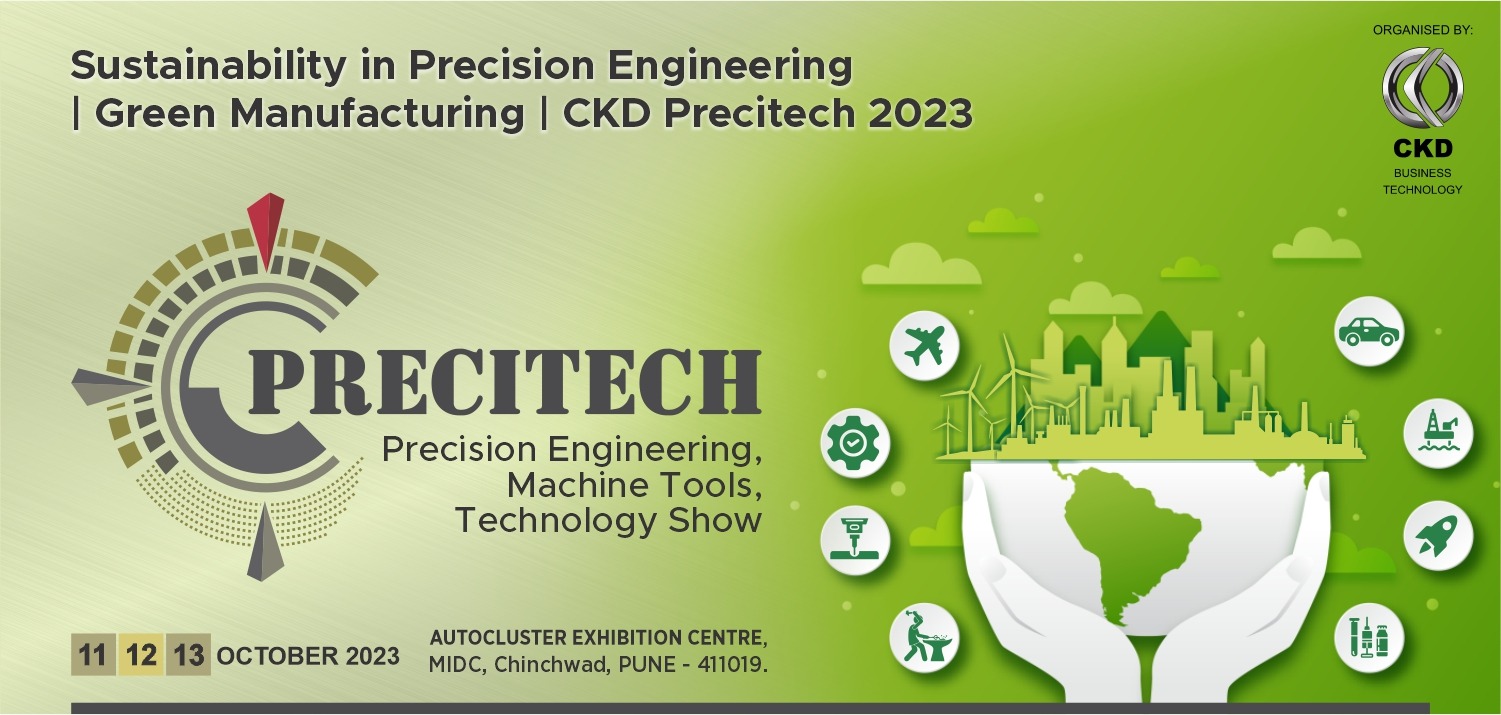
In today’s rapidly evolving world, the need for sustainable practices across industries has never been more critical. Precision engineering, a field at the heart of manufacturing, plays a pivotal role in this transformation. India’s largest platform for precision engineering, Precitech, is at the forefront of promoting sustainability through green manufacturing practices.
The Foundation of Innovation: Precision engineering is the art of designing and manufacturing intricate components with the highest level of accuracy and reliability. From aerospace and automotive to healthcare and electronics, precision engineering underpins progress in various sectors. However, this level of precision often comes at a cost to the environment.
The Challenges: Precision engineering has long been associated with exactitude, efficiency, and the highest standards of quality. However, achieving these lofty standards often involved energy-intensive processes, excessive waste, and a significant environmental footprint. In response to global environmental concerns, the precision engineering industry is steering towards a more sustainable path.
The Path to a Cleaner Future: Green manufacturing is an approach that focuses on minimizing the environmental impact of production processes while optimizing efficiency and quality. It encompasses several key principles:
1. Energy Efficiency: Precision engineering companies are investing in energy-efficient technologies and practices, such as using advanced CNC machines that consume less energy while maintaining high precision.
2. Material Sustainability: Sustainable materials and recycling are becoming central to precision engineering. Reusing materials reduces waste and conserves valuable resources.
3. Reducing Waste: Precise machining techniques minimize material wastage, and recycling programs ensure that scrap materials are repurposed rather than discarded.
4. Emissions Reduction: Green manufacturing prioritizes cleaner technologies and emission control measures, reducing the carbon footprint of precision engineering processes.
Energy Efficiency: Precision engineering machines are becoming more energy-efficient. New technologies and designs are minimizing power consumption while maintaining or improving precision levels, thus reducing the carbon footprint.
Material Optimization: Precision engineers are redefining material usage through innovative techniques like additive manufacturing (3D printing) and advanced machining processes. This approach minimizes waste and maximizes resource utilization, contributing to sustainable practices.
Circular Economy: Precision engineering isn’t just about creating new components; it’s also about extending the life of existing ones. The circular economy mindset is taking root, as engineers refurbish and remanufacture products to reduce waste.
Digitalization and Data-Driven Decisions: Data analytics and Industry 4.0 technologies are optimizing precision engineering processes. This data-driven approach minimizes errors, reduces resource wastage, and helps manufacturers fine-tune their operations for maximum efficiency and minimal environmental impact.
Responsible Supply Chains: Manufacturers are increasingly scrutinizing their supply chains to ensure sustainability. Ethical sourcing and responsible procurement practices are becoming the norm, ensuring that sustainability principles are upheld throughout the entire production process.
Precitech, as India’s premier exhibition and trade fair platform for precision engineering and machine tools technology, is leading the way in demonstrating how precision and sustainability can go hand in hand. It’s not just a platform for manufacturers, innovators, and technology enthusiasts; it’s a foundation for shaping a more sustainable world, one precise component at a time.


